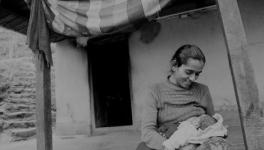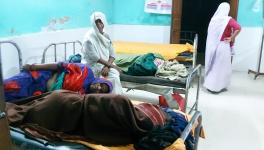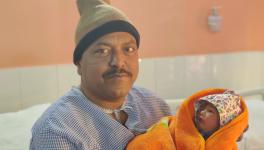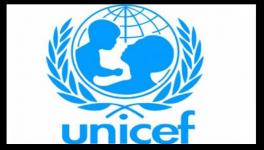Babies Delivered by Caesarean Not Breastfed on Time, Doctors Lack Training
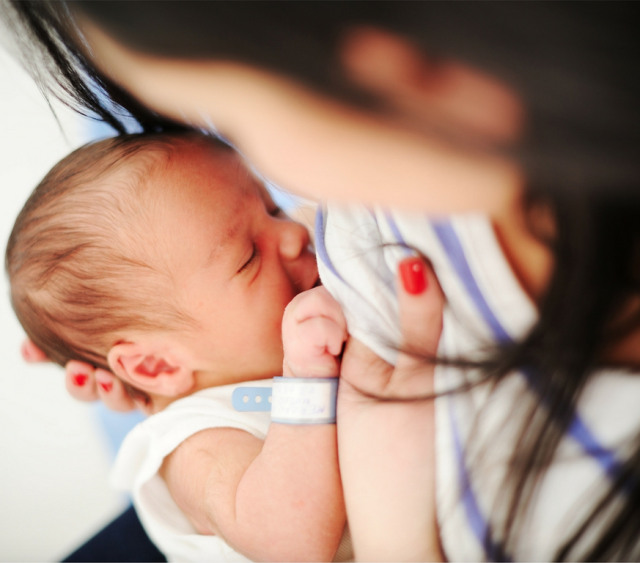
Image Courtesy: The Truth About Traumatic Birth - WordPress.com
Pune: Puja Kendre (name changed), 21 years old, delivered a baby through caesarean on August 17 at a private hospital in Pune. She breastfed the baby after 28 hours as she had to bear pain of caesarean. Doctors attending her said it's not possible to breastfeed babies delivered through caesarean within an hour as mothers are not in a position to do so.
Breastfeeding a baby within an hour of birth has been proven important for survival and proper development of a child. According to National Family Health Survey 2016 data, 60% new mothers in India don’t breastfeed their infants within the first hour of birth. Nearly 42% babies delivered by health personal get breastfeed within an hour but only 33% delivered by non-health personal, for example, those born at home get breastfeed within an hour. The data also says that 44% women who have schooling of more than 8-9 years breastfeed babies within an hour against 34% who have studied less than 3-4 years.
The NFHS data shows that mothers who deliver at hospitals are more likely to breast feed babies within an hour of birth. However, NewsClick interviewed 20 women who recently delivered babies through caesarean. They said they did not breastfeed babies within an hour.
Shahida Shaikh, is a 23 year old lady, who is lying down with her two days old baby beside her in the general ward in Sassoon General Hospital. Her mother Sabina is having lunch nearby in a small space between two beds in a ward having over 50 women who have delivered babies through C section. Sabina answered when this reporter asked Shahida if her baby was breastfed within an hour of the birth. She said, “How can Shahida breastfeed the baby? She was under the influence of anaesthesia. The baby would have got anaesthesia as well. The doctor gave the baby milk made of powder.”
Also read: Lack of Infrastructure in Govt Hospital NICUs in Peripheral Regions
Fifteen mothers, including Shahida who are admitted at Sassoon have breastfed the babies from after four hours to two days after birth. Ayodhya Khedekar said that she was not able to breastfeed her baby due to pain in her body.
Dr P W Sambre, head of Obstetrics and Gynaecologist department at Sassoon said, “When baby is delivered through C-section, mothers are not in a position to breast feed babies within an hour, though we try to feed babies from the Milk Bank at Sassoon.”
A lady doctor working at Jahangir Hospital, on the condition of anonymity, told that babies delivered through caesarean can hardly be breastfed within an hour of birth.
Sneha Dev, head of training programs for health workers across Maharashtra, said that infants don’t get breast milk within an hour due to many reasons and that can be reduced just by creating awareness among mothers, families, hospital staff and health workers. She added, “When infants are in neonatal intensive care unit (NICU) or mother delivers through C section, or due to lack of knowledge among family members or staff at a hospital, chances of breastfeeding infants within first hour of birth are almost zero.” She points out that creating awareness among all stake holders itself can reduce infant morbidity and mortality.
Dr Prashant Gangal of Breastfeeding Promotion Network of India-Maharashtra, coordinator for mother support and training, said, “As per World Health Organisation recommendations, baby should be breastfed within an hour of birth regardless of whether baby is delivered through caesarean or baby is at NICU. Baby can be breastfed from the direction of shoulder before mother is taken to operation table. If the mother is in pain then her relatives should be asked to breastfed the baby by keeping baby on the mother’s body. Not only colostrum but also skin to skin contact (SSC) of mother and baby is important. Mother’s body has microbes that are either antibodies or friendly bacteria and when baby is given SSC, baby gets those microbes becoming stronger to fight bacteria.”
He also added, “There is need of baby friendly hospitals where caesarean sections will have facility so that mothers can breastfeed babies. Also NICUs need to have facilities so that mothers can breastfeed babies. Governments should make sure that all hospitals for mothers and babies are child friendly.”
“Doctors should be trained that no matter what all babies should be breastfed within an hour of birth,” he emphasised.
Dr Ashish Bharati of Family Health Welfare Department, Maharashtra, said that there is a need for private hospitals to adhere to guidelines.
Importance of Colostrum and Breastfeeding initiation within an hour
As per United Nation Children’s Education Fund (UNICEF) and World Health Organisation (WHO), Colostrum establishes important bacteria in the baby’s gut. It also acts as a ‘paint’, coating the infant’s gastrointestinal tract. Therefore, colostrum provides natural immunity (baby's first immunisation) against many bacteria and viruses. Research also shows that optimal breastfeeding can avert 60% deaths of new born and optimal breastfeeding begins within an hour of birth.
Also read: Assam: 16 Infants Die Over a Week
According to WHO and Lancet, immediate skin-to-skin contact helps regulate the newborns babies’ body temperature and exposes them to beneficial bacteria from their mother’s skin. These good bacteria protect babies from infectious diseases and help build their immune systems.
As per research including that by Lancet, breastfeeding within the first hour of birth decreases neonatal deaths by 22%. Exclusive breastfeeding for first six months of life prevents morbidity and mortality due to common childhood illnesses like diarrhoea and pneumonia. The role of optimal breastfeeding in preventing Non-Communicable Diseases (NCDs) such as obesity, diabetes, and hypertension, has been documented well.
Breastfeeding also leads to higher IQ and earning capacity later in life as proved in a recent research showing increasing IQ, educational attainment and monthly income with increasing breastfeeding duration.
Get the latest reports & analysis with people's perspective on Protests, movements & deep analytical videos, discussions of the current affairs in your Telegram app. Subscribe to NewsClick's Telegram channel & get Real-Time updates on stories, as they get published on our website.












